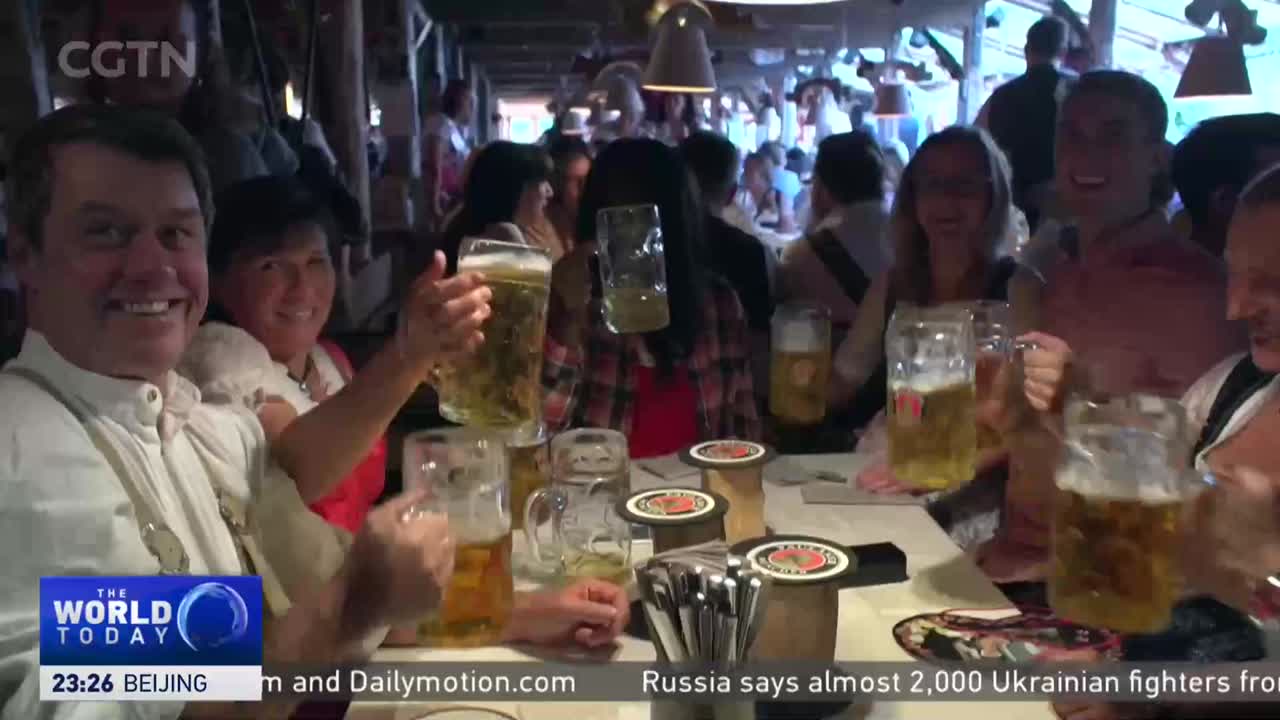02:21

Many Germans would argue that there is simply nothing better than a nice cold beer on a hot sunny day. Yet, according to the German Brewers Association, the price for the beverage could rise by as much as 30 percent in the coming months.
And bottled beer, which is the preferred choice for outdoor drinking, might not be available at all as concerns mount over a possible beer bottle supply shortage.
Rising energy prices caused by the conflict in Ukraine is leading to higher prices for beer and the bottles it comes in.
READ MORE
Mariupol's last stand
What is monkeypox?
McDonald's leaves Russia for good
Production costs have gone up by 400 percent since the start of 2020, estimates Ulrich Biene, head of PR for Veltins brewery in Germany's most populous state of North Rhine-Westphalia.
"There is hardly an area where suppliers aren't raising prices or aren't fighting rising costs," he says.
In just over a year, the cost of malt – one of the four legally permitted ingredients for beer brewed in Germany, along with water, hops and yeast – has gone up by around 70 percent.

Consumers are being encouraged to return their empty beer bottles to counter a shortage of glass bottles. /Natalie Carney/CGTN
Consumers are being encouraged to return their empty beer bottles to counter a shortage of glass bottles. /Natalie Carney/CGTN
In the same period, gas prices have also risen by 430 percent while electricity rates have more than doubled, pushing breweries to their limits, as they are still enduring COVID-19 pandemic-related hikes, says Biene.
"Gas as a fuel source is essential for the brewhouses. When we have [gas] controls imposed through the government that would certainly lead to significant limits to production," he admits, referring to potential restrictions Berlin could impose on energy usage as it attempts to reduce its dependence on Russian oil and gas.
Inflation in Germany rose by 7.3 percent in March and 7.4 percent in April, the highest levels since reunification more than 30 years ago, and there seems to be no respite in sight.
Supply chain challenges
All this is also affecting the price of glass beer bottles, with an increase of 80 percent recorded since the same period last year, according to the German Brewers Association.
In addition to this, lack of truck drivers is also putting pressure on supply chains.
To improve the situation, bottle beer drinkers in Germany are being encouraged to return their empties as soon as possible. To facilitate this, a deposit has to be paid for glass beer bottles, which is returned to the consumers when they return it to be reused.
Germany's world famous Octoberfest will be returning in September after two years of COVID-19-related closures. And this time patrons will have to pay close to $14 for a traditional liter of beer – around $2 more than it cost in 2019.
Yet while the higher production costs are being passed on to the customer, many Germans are accepting of the higher prices.
"The cost of every item is a little bit more expensive," says 81-year-old Karin Muller.
"I'm surprised the breweries didn't raise the cost sooner, given the enormous energy costs," says another German beer drinker, Bernhard Jung. "All that beer has to be brewed. I think it's justified."

